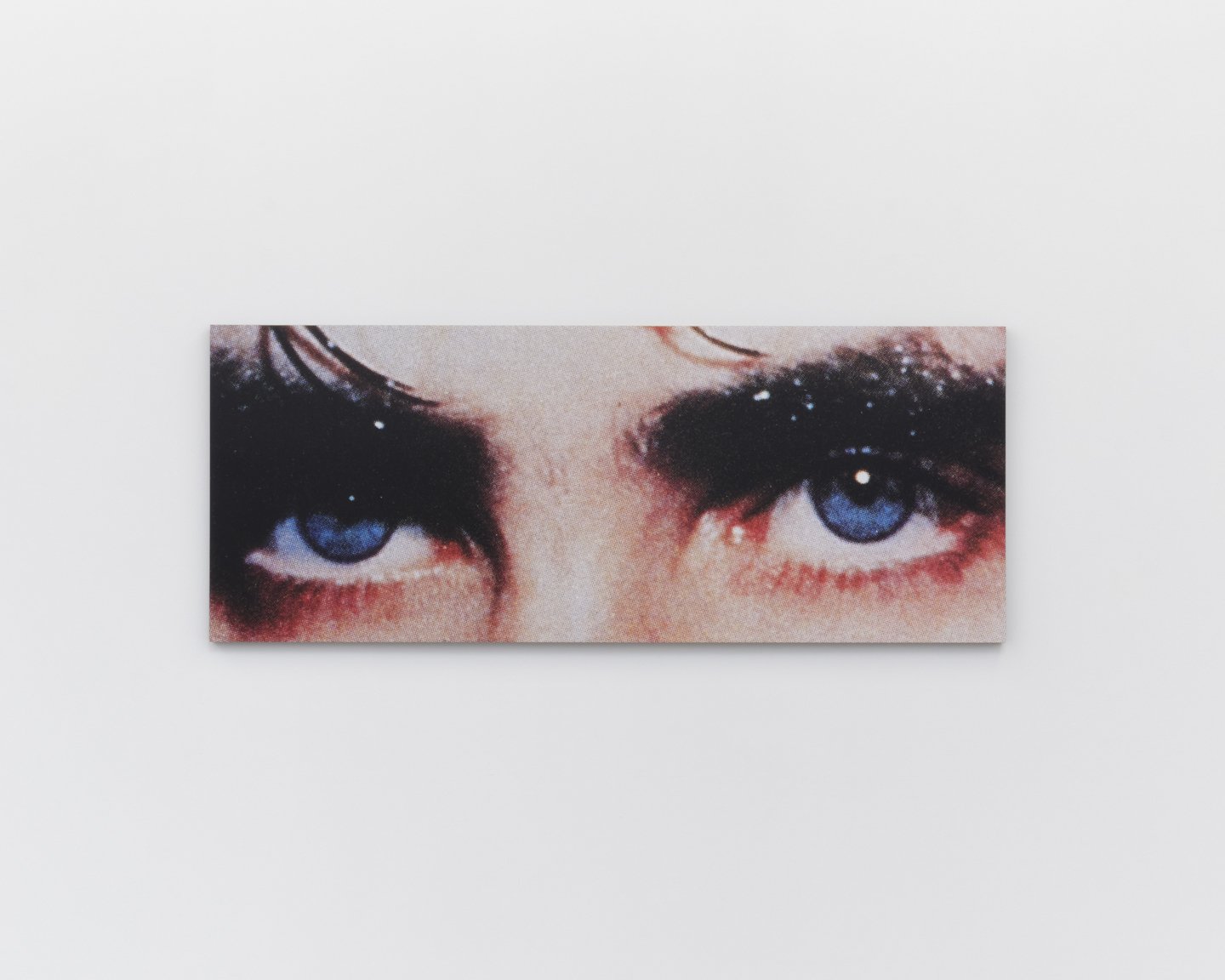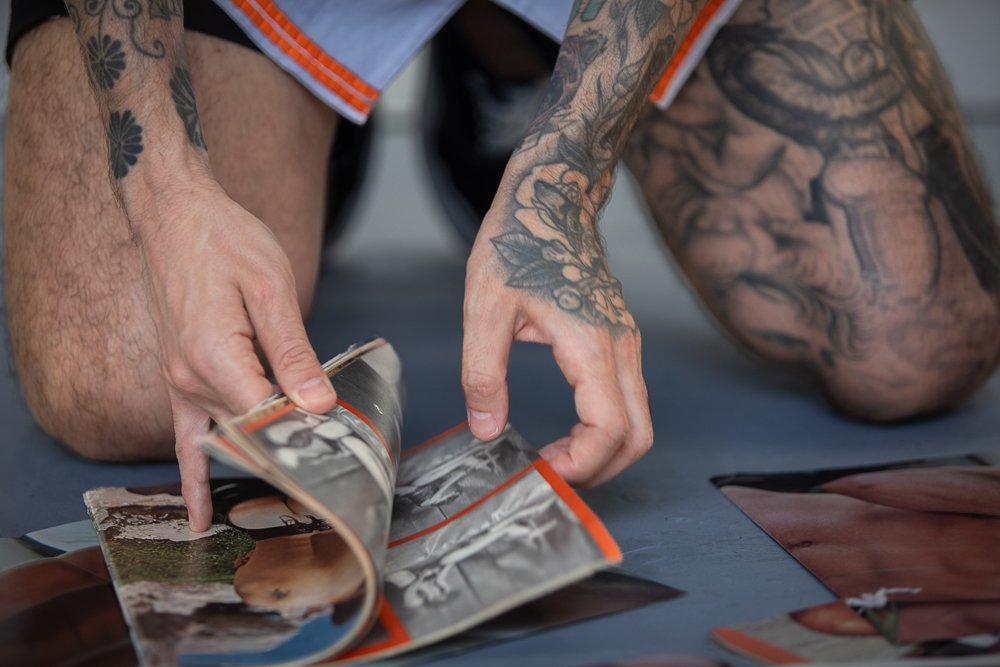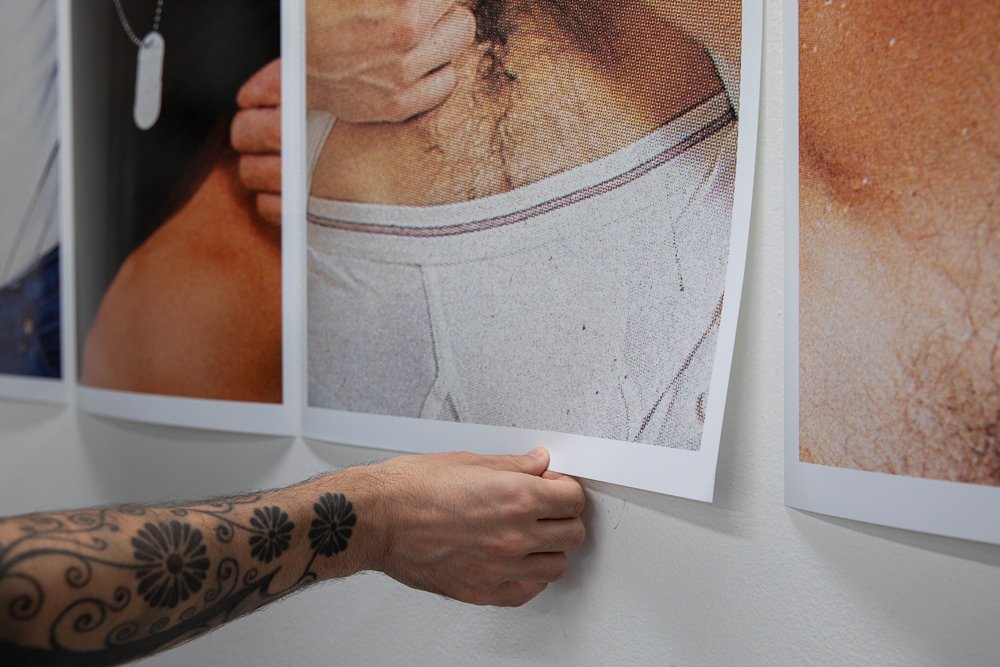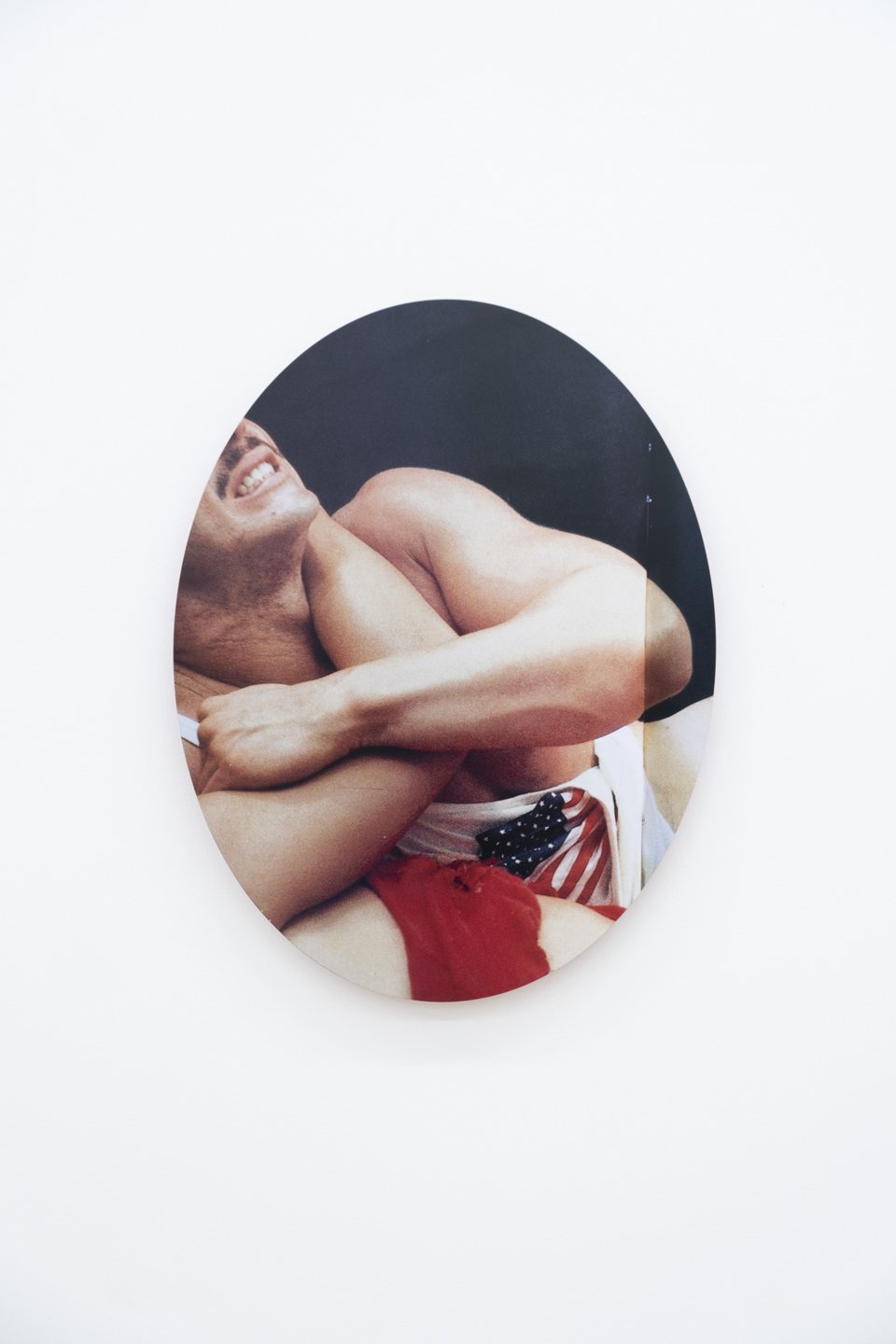January 2024
Pacifico Silano
Film directed by Alexa Caravia for Fountainhead Arts
Cops. Cowboys. A construction worker. Leather. Tank tops. Muscles. Bare chests. Wanting. Waiting. Sly. Available. These men are playing. They’re subversive. They’re enacting dominance in a world that reserves that for straight men. Maybe these men will be sweet and the right kind of rough. But what if they’re not? What if they’re not respectful? What if they’re just like the other men? What if they cross the line?
In an influential 1985 essay in the journal October, the film theorist Christian Metz explored photography’s relationship to the fetish or the fetishistic nature of male desire stoked by fear of castration as expounded by Sigmund Freud and Jacques Lacan. In her writing, the art historian Amelia Jones explains Metz’s essay, in part, as an argument that photography castrates the real. Because photography can stop time, preserve, capture, selectively point to the past, isolate, and crop, figuratively and by extension, we might even say it can kill.
In rephotographing vintage gay male porn—all the tough cops, cattlemen, and leather daddies—Pacifico Silano enters a doubly dangerous space of potentially violent psychologically and culturally informed play within an arguably violent medium. At Fountainhead, Silano had the time and space to edit and flesh out the elements of Psychosexual Thriller, his March 2024 exhibition at Island, a gallery on the Bowery in New York. “It’s very fleshy,” he explains, “There’s a lot of skin. No [full] nudity. There are a lot of tightly cropped photographs that are blown up very large, so you see the printing matrix dots… The residency was like a test launch for the show.”
When we got together after the residency but before the show, Silano and I discussed power. “To me, there’s this fascinating push-pull,” he said, “an image can be both empowering and oppressive at the same time. Some people will be empowered by my work and some people will be seduced by it and also uncomfortable. I’m asking questions about what [we have] been told is desirable, which is power.”
“I believe in self-criticality,” he added. “I believe in stepping back and taking a look at the bigger picture. I love photographic clichés, but we play into them.”
Some people feel threatened by this work. I asked about these people. Silano answered, “I’m not moralizing sex. I’m looking inward to ask difficult questions about power. There’s a rush that comes with danger. I’m fully aware of that.”
I asked him, then, about the people who love his work and what he thinks they see. “I think they see images you can’t unsee. These are images that are from our collective imagination,” he offered. “They’re cinematic. They’re all about the gesture, the way a fist is being made, the way that’s lit, and what’s implied when you isolate it away from its original context and then put it next to other images. There starts to become a narrative that speaks to the infinite life of these pictures and pictures in general. I like that.”
Words by Marcus Civin







